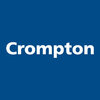Filter interviews by
SYSKA LED Lights Senior Executive Accounts Officer Interview Questions and Answers
SYSKA LED Lights Senior Executive Accounts Officer Interview Experiences
1 interview found
I applied via Naukri.com and was interviewed before Oct 2022. There were 3 interview rounds.

(1 Question)
- Q1. Qualification, Experience, Location, Salary Expectations etc
(4 Questions)
- Q1. Final Interview with CA, Questions about Accounting, taxation, SAP and it's codes.
- Q2. What'sis accounts receivable
- Ans.
Accounts receivable is the money owed to a company by its customers for goods or services provided on credit.
Accounts receivable represents the amount of money that customers owe to a company for goods or services purchased on credit.
It is considered an asset on the company's balance sheet.
Companies often have specific policies and procedures in place to manage accounts receivable and ensure timely payment.
Examples inc...
- Q3. What's accounts payable
- Ans.
Accounts payable is the amount of money a company owes to its suppliers or vendors for goods or services purchased on credit.
Accounts payable represents a company's short-term debt obligations to its suppliers or vendors.
It is listed as a liability on the company's balance sheet.
Accounts payable is typically paid within a specified period, often 30, 60, or 90 days.
Examples include invoices from suppliers for raw materi...
- Q4. TDS rates and sections
- Ans.
TDS rates and sections refer to the tax deducted at source rates and corresponding sections under the Income Tax Act.
TDS rates vary based on the type of payment being made and the recipient's status.
For example, the TDS rate for salary income is different from that for interest income.
Sections like 192, 194A, 194J, etc., specify the TDS rates and rules for different types of payments.
It is important for accounts office...
Top trending discussions






Interview questions from similar companies

I applied via Naukri.com and was interviewed in Aug 2024. There were 3 interview rounds.
(2 Questions)
- Q1. What is account details
- Ans.
Account details refer to specific information related to a financial account, including transactions, balances, and account holder information.
Account details typically include the account holder's name, account number, and contact information.
They also include transaction history, such as deposits, withdrawals, and transfers.
Account details may also include current balances, interest rates, and any fees associated wit...
- Q2. What is mis executive
- Ans.
MIS Executive stands for Management Information System Executive, responsible for managing and analyzing data to support decision-making.
MIS Executive is responsible for collecting, analyzing, and presenting data to support management decision-making.
They use various software tools to generate reports, dashboards, and presentations for management.
MIS Executives often work closely with different departments to gather re...
(2 Questions)
- Q1. What is account details
- Ans.
Account details refer to specific information related to a financial account, including transactions, balances, and account holder information.
Account details typically include the account holder's name, account number, transaction history, and current balance.
These details are used for tracking financial activities, monitoring account status, and ensuring accuracy in financial records.
Examples of account details inclu...
- Q2. What is mis executive
- Ans.
MIS Executive stands for Management Information System Executive, responsible for managing and analyzing data to support decision-making within an organization.
MIS Executives use various software tools to collect, organize, and analyze data.
They create reports, dashboards, and presentations to communicate insights to management.
They play a crucial role in improving operational efficiency and strategic planning.
Examples...
(2 Questions)
- Q1. What is account
- Ans.
Accounting is the process of recording financial transactions and summarizing them in financial statements.
Accounting involves recording financial transactions such as sales, purchases, and expenses.
It also includes summarizing these transactions in financial statements like balance sheets and income statements.
Accounting helps in analyzing the financial health of a business and making informed decisions.
Examples of ac...
- Q2. What is mis executive
- Ans.
MIS Executive stands for Management Information System Executive, responsible for managing and analyzing data to support decision-making within an organization.
MIS Executives use software tools to collect, organize, and analyze data for reporting purposes.
They create reports, dashboards, and presentations to communicate insights to management.
They may also be involved in database management, data mining, and process im...

(2 Questions)
- Q1. What is accrual accounting ?
- Ans.
Accrual accounting is a method of accounting where revenues and expenses are recorded when they are earned or incurred, regardless of when cash is exchanged.
Revenue is recognized when it is earned, not necessarily when cash is received
Expenses are recorded when they are incurred, not necessarily when they are paid
Accrual accounting provides a more accurate picture of a company's financial position and performance over ...
- Q2. What you treat prepayment ?
- Ans.
Prepayment is an advance payment made for goods or services before they are received or delivered.
Prepayment is recorded as an asset on the balance sheet until the goods or services are received or delivered.
Once the goods or services are received or delivered, the prepayment is then recognized as an expense on the income statement.
Examples of prepayments include rent paid in advance, insurance premiums, and subscripti

I applied via Recruitment Consulltant and was interviewed in Dec 2023. There was 1 interview round.
(3 Questions)
- Q1. Tell about Account payables
- Ans.
Accounts payable is the amount of money a company owes to its suppliers or vendors for goods or services purchased on credit.
Accounts payable is a liability on the balance sheet.
It represents the amount of money a company owes for goods or services received but not yet paid for.
Accounts payable is typically recorded when an invoice is received from a supplier.
It is an important aspect of managing a company's cash flow ...
- Q2. What is fixed Assets
- Ans.
Fixed assets are long-term tangible assets that are used in the production of goods or services and are not intended for sale.
Fixed assets are physical assets like buildings, machinery, vehicles, and equipment.
They are used by a company for more than one accounting period.
Fixed assets are not intended for sale in the normal course of business.
They are recorded on the balance sheet at their original cost minus accumulat...
- Q3. How to capitalise you plant
- Ans.
To capitalise a plant, you can allocate costs associated with acquiring, constructing, or improving the plant as assets on the balance sheet.
Determine the cost of the plant, including purchase price, installation costs, and any other costs directly related to getting the plant ready for use.
Record the plant as a fixed asset on the balance sheet, categorising it appropriately based on its useful life and depreciation me...
Interview Preparation Tips

Executive Accountant Interview Questions & Answers
Godrej & Boyce Manufacturingposted on 4 May 2024
I applied via Naukri.com and was interviewed in Apr 2024. There was 1 interview round.
(1 Question)
- Q1. Job related , qualification, salary


(2 Questions)
- Q1. Brief Discussion on the previous Company Profile? How will you handle ASIAN stakeholders? Explain in Short 5 IFRS most relevant to Philips? Explain Due diligence? What are internal Controls and how are the...
- Q2. Flexibility of working hours, General questions about the handling work for different stake holders
Interview Preparation Tips

(1 Question)
- Q1. Tell me about yourself

I applied via Job hai and was interviewed in Aug 2023. There was 1 interview round.
(1 Question)
- Q1. 1. What is working capital? 2. What is bank reconcilation? 3. Golden rules of accounting?
- Ans.
Working capital is the difference between current assets and current liabilities. Bank reconciliation is the process of matching the balances in a company's accounting records to the corresponding information on a bank statement. Golden rules of accounting are basic principles that guide the process of recording financial transactions.
Working capital is calculated as current assets minus current liabilities.
Bank reconc...
Interview Preparation Tips

I applied via Indeed and was interviewed in Jun 2022. There were 2 interview rounds.

(2 Questions)
- Q1. What is the Job Role In Your Company
- Ans. Accountant In Tally with computer operator
- Q2. Why is the resign Your Previous Job
Interview Preparation Tips

I was interviewed in May 2022.
(1 Question)
- Q1. Tell me about yourself.
- Ans. My name is sweety Rajoriya and I am 21 year old. for the past 1 year, I've been working as a Data entry at company Om service. i am graduate i have just completed my studies
Interview Preparation Tips
SYSKA LED Lights Interview FAQs
Tell us how to improve this page.
SYSKA LED Lights Interviews By Designations
- SYSKA LED Lights Territory Sales Manager Interview Questions
- SYSKA LED Lights Assistant Branch Manager Interview Questions
- SYSKA LED Lights Sales Executive Interview Questions
- SYSKA LED Lights Area Sales Manager Interview Questions
- SYSKA LED Lights Branch Manager Interview Questions
- SYSKA LED Lights State Head Interview Questions
- SYSKA LED Lights ABM-( State Wise) Interview Questions
- SYSKA LED Lights Accountant Interview Questions
- Show more
Interview Questions for Popular Designations
- Accounts Manager Interview Questions
- Senior Accounts Executive Interview Questions
- Accountant Interview Questions
- Accounts Officer Interview Questions
- Executive Accountant Interview Questions
- Accounts & Finance Executive Interview Questions
- Accounts Payable Executive Interview Questions
- Accounts & Finance Manager Interview Questions
- Show more
Interview Questions from Similar Companies
SYSKA LED Lights Senior Executive Accounts Officer Reviews and Ratings
based on 1 review
Rating in categories
|
Assistant Branch Manager
226
salaries
| ₹11.6 L/yr - ₹18 L/yr |
|
Sales Executive
212
salaries
| ₹1.8 L/yr - ₹4.2 L/yr |
|
Territory Sales Manager
99
salaries
| ₹2.8 L/yr - ₹6 L/yr |
|
Sales Officer
85
salaries
| ₹1.8 L/yr - ₹4 L/yr |
|
Branch Manager
52
salaries
| ₹13 L/yr - ₹25 L/yr |

Signify

Havells

Bajaj Electricals

Crompton Greaves Consumer Electricals
- Home >
- Interviews >
- SYSKA LED Lights Interview Questions >
- SYSKA LED Lights Senior Executive Accounts Officer Interview Questions







